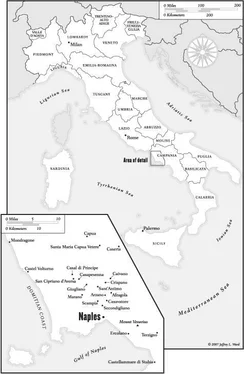Roberto Saviano - Gomorrah - A Personal Journey into the Violent International Empire of Naples’ Organized Crime System
Здесь есть возможность читать онлайн «Roberto Saviano - Gomorrah - A Personal Journey into the Violent International Empire of Naples’ Organized Crime System» весь текст электронной книги совершенно бесплатно (целиком полную версию без сокращений). В некоторых случаях можно слушать аудио, скачать через торрент в формате fb2 и присутствует краткое содержание. Жанр: Старинная литература, на английском языке. Описание произведения, (предисловие) а так же отзывы посетителей доступны на портале библиотеки ЛибКат.
- Название:Gomorrah: A Personal Journey into the Violent International Empire of Naples’ Organized Crime System
- Автор:
- Жанр:
- Год:неизвестен
- ISBN:нет данных
- Рейтинг книги:5 / 5. Голосов: 1
-
Избранное:Добавить в избранное
- Отзывы:
-
Ваша оценка:
- 100
- 1
- 2
- 3
- 4
- 5
Gomorrah: A Personal Journey into the Violent International Empire of Naples’ Organized Crime System: краткое содержание, описание и аннотация
Предлагаем к чтению аннотацию, описание, краткое содержание или предисловие (зависит от того, что написал сам автор книги «Gomorrah: A Personal Journey into the Violent International Empire of Naples’ Organized Crime System»). Если вы не нашли необходимую информацию о книге — напишите в комментариях, мы постараемся отыскать её.
Gomorrah: A Personal Journey into the Violent International Empire of Naples’ Organized Crime System — читать онлайн бесплатно полную книгу (весь текст) целиком
Ниже представлен текст книги, разбитый по страницам. Система сохранения места последней прочитанной страницы, позволяет с удобством читать онлайн бесплатно книгу «Gomorrah: A Personal Journey into the Violent International Empire of Naples’ Organized Crime System», без необходимости каждый раз заново искать на чём Вы остановились. Поставьте закладку, и сможете в любой момент перейти на страницу, на которой закончили чтение.
Интервал:
Закладка:
Augusto’s legionnaires would do anything for him. They even followed him when he turned state’s witness. In January 2003, after his wife’s arrest, the boss decided to take the big step. He accused himself and his men of forty or so homicides, gave the locations of the wells where they’d exploded people, and charged himself with dozens and dozens of extortions. A confession that focused more on military than economic activity. His most loyal men—Mario Sperlongano, Giuseppe Valente, Girolamo Rozzera, Pietro Scuttini, Salvatore Orabona, Ernesto Cornacchia, Angelo Gagliardi—soon followed him. Once in jail, silence becomes the bosses’ best weapon for holding on to authority, for formally maintaining power, even if the harsh prison routine removes them from hands-on management. But Augusto La Torre is a special case: by confessing and having all his men follow suit, there was no fear that someone would kill his family as a result of his defection. Nor did collaborating with the authorities seem to undermine the Mondragone cartel’s economic empire. His confession only helped reveal the logic of the killings and the history of power along the Caserta and Lazio coast. Like many Camorra bosses, Augusto La Torre spoke of the past. Without pentiti, the history of power could not be written. Without pentiti the truth—facts, details, and mechanisms—is only discovered ten, twenty years later, as if a man were to understand how his vital organs worked only after he is dead.

Collaboration on the part of Augusto La Torre and his chiefs of staff presents a certain risk; they could receive substantial sentence reductions in exchange for confessing and be released a few years later. They could delegate military power to others, above all the Albanian crime families, and still maintain their legal economic power. It’s as if they decided to tell the whole truth and nothing but the truth, to use their knowledge as a way of living on their legal activities only and to avoid life sentences and internal feuds in the process. Augusto had never been able to stand being locked up; unlike the great bosses who’d trained him, he was incapable of surviving decades of incarceration. He expected the prison cafeteria to serve vegetarian food. And as he loved movies but wasn’t allowed a VCR in his cell, when he felt like seeing The Godfather, he’d ask a local broadcaster to air it in the evening, before he went to bed.
For the magistrates, La Torre’s collaboration is laden with ambiguity, for he never renounced his role as boss. His revelations were an extension of his power, as a letter to his uncle shows: he reassures him that he “saved” him from any possible involvement in clan affairs, but, good storyteller that he is, he also does not fail to threaten him and two other relatives, thus averting the possibility of an alliance against him developing in Mondragone:
“Your son-in-law and his father feel protected by the walking dead.”
The boss, even as a pentito, still asked for money from his jail cell in the Aquila prison. He got around the System by delivering commands and requests for cash in letters he gave to his mother or driver, Pietro Scuttini. According to the magistrates, those requests were actually extortions. A polite, courteous letter to the owner of one of the largest cheese makers on the Domitian coast proves that Augusto still considered him under his control.
“Dear Peppe, I need to ask you a huge favor, because I’ve been ruined. If you would like to help me—but I only ask in the name of our old friendship and not for any other reason, and even if you say no, don’t worry, I’ll always look out for you! I am in urgent need of ten thousand euros. You also have to tell me if you can give me a thousand euros a month, which I need to live with my children.”
The standard of living the La Torre family was used to was way above the economic assistance level the state provides to collaborators. I only managed to understand the family dealings after reading the documents of the mega-confiscation carried out under the Santa Maria Capua Vetere Court orders in 1992. They seized properties worth about 230 million euros, nineteen companies worth 323 million euros, as well as manufacturing equipment and machinery worth 133 million euros. Numerous factories located along the coast between Naples and Gaeta, including a dairy, a sugar refinery, four supermarkets, nine seaside villas, buildings, land, as well as big cars and motorcycles. Every company had about sixty employees. The judges also ordered confiscated the company that had won the trash-collection contract in Mondragone. A huge operation that annulled a vast economic power, but microscopic compared to actual clan operations. A grandiose villa near Ariana di Gaeta, whose fame had reached all the way to Aberdeen, was also seized. Four stories, right on the cliffs, a swimming pool complete with underwater labyrinth, designed after the villa of Tiberius—not the founder of the Mondragone clan, but the Roman emperor who had retired to the island of Capri. I never did get inside; legends and court documents were the lens through which I learned of the existence of this imperial mausoleum, sentinel of the clan’s Italian properties. The coastal zone could have been a sort of infinite space, inspiring every architectural fantasy imaginable. Instead over time it became a hodgepodge of houses and small villas, thrown up quickly to attract tourists to southern Lazio and Naples. No zoning regulations, no permits. As a result, groups of African immigrants were crammed into cottages from Castelvolturno to Mondragone, and the parks that were planned, the grounds that were for new vacation homes, became unregulated dumps. None of the coastal towns had a purification plant. Now a brownish sea bathes beaches covered in trash. In a few years, even the most remote remembrance of beauty had been canceled out. In the summertime some nightclubs turned into regular brothels. Friends, preparing for the evening’s activities, would show me their empty wallets. Empty not of cash, but of thin foil packets with a circular soul—condoms. They were letting it be known that it was safe to go to Mondragone to fuck without protection: “Tonight we go without!”
Augusto La Torre was Mondragone’s condom. The boss decided to keep watch over the health of his subjects. Mondragone became a sort of temple, clean of the most dreaded of sexually transmitted diseases. While the rest of the world was plagued with HIV, northern Caserta was fully under control. The clan was meticulous, tracking everyone’s test results. To the extent possible, the clan kept complete lists; they did not want their territory infected. And so when a man close to Augusto tested positive for HIV, they found out immediately. Fernando Brodella frequented the local girls; he could be dangerous. Unlike the Bidognetti clan, who sent their affiliates to the best doctors and paid for surgery in the top hospitals in Europe, the La Torres didn’t even consider sending Brodella to a good doctor or paying for his treatment. They killed him in cold blood. Clan orders: eliminate the sick to stop the epidemic. An infectious disease, especially one transmitted sexually, through the least controllable act, could only be stopped by removing those who were infected once and for all. The only way to be sure they would not infect anyone was to end their lives.
Capital investments in Campania also had to be safe. They even bought a villa in Anacapri that housed the local carabinieri headquarters. With carabinieri as tenants, they were guaranteed not to run into any difficulties. When the La Torres realized the villa would bring in more money with tourists, they evicted the carabinieri and divided it into six apartments with a yard and parking spaces—before the anti-Mafia division arrived and seized the whole place. Clean, safe investments, with no speculative risks.
Читать дальшеИнтервал:
Закладка:
Похожие книги на «Gomorrah: A Personal Journey into the Violent International Empire of Naples’ Organized Crime System»
Представляем Вашему вниманию похожие книги на «Gomorrah: A Personal Journey into the Violent International Empire of Naples’ Organized Crime System» списком для выбора. Мы отобрали схожую по названию и смыслу литературу в надежде предоставить читателям больше вариантов отыскать новые, интересные, ещё непрочитанные произведения.
Обсуждение, отзывы о книге «Gomorrah: A Personal Journey into the Violent International Empire of Naples’ Organized Crime System» и просто собственные мнения читателей. Оставьте ваши комментарии, напишите, что Вы думаете о произведении, его смысле или главных героях. Укажите что конкретно понравилось, а что нет, и почему Вы так считаете.












